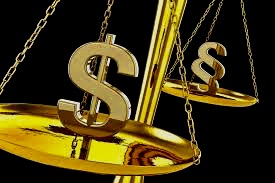
The test as to whether a legal fees agreement was “fair and reasonable” was recently reviewed in Hammerberg Lawyers LLP v Ikeda 2016 BCSC 621.
The agreement in question was a contingency fee agreement. The lawyers worked on a difficult case for a long time but found that the client would not co operate and eventually obtained an order removing the firm as the lawyers for the -plaintiff. The plaintiff then settled her case directly with the insurance company and the lawyers sued the plaintiff for their fees and won.
The court found that it was a difficult case, the client could not have afforded to prosecute it without a contingency fee and that the settlement was a result of the work performed by the law firm.
In reviewing the law on fee agreements the court stated :
[86] Registrar Nielsen has summarized the framework for this type of analysis in Spraggs & Company v. Carnaby, 2015 BCSC 1504:
[25] Section 65 of the Legal Profession Act allows a lawyer or a law firm to enter into an agreement with any other person, requiring the payment for services provided or to be provided.
[26] Section 68 of the Legal Profession Act allows a person who has entered into an agreement with a lawyer to have the agreement examined and cancelled if the agreement was unfair or unreasonable at the time it was entered into. However, section 68(3) of the Legal Profession Act provides a strict limitation period for such a review which has not been met in this case. The client’s failure to properly challenge the agreement within the time provided by the Legal Profession Act is sufficient to dispose of this issue.
…
[28] The test for determining whether an agreement is fair and reasonable was established in Commonwealth Investors Syndicate Ltd. v. Laxton, 50 BCLR (2d) 186 (BCCA), leave to appeal refused [1990] S.C.C.A. No. 479 QL. The Court stated at pages 198 and 199:
In our opinion s. 99 contemplates a two-step enquiry.
The first step investigates the mode of obtaining the contract and whether the client understood and appreciated its contents. The enquiry would include whether, at the time the contract was entered into, there was any lack of capacity on the part of the client, whether there was any undue influence exercised or unfair advantage taken by the solicitor, whether any mistake was made, or whether any other flaw arose in the formation of the contract which would indicate that the client did not understand and appreciate its content. The onus would be upon the solicitor to satisfy the foregoing requirements of the enquiry. Should any of those be found, the contract would not be “fair” in the sense of the statute and Re Stuart. The court would declare the contract cancelled, or would modify it, or the bill could be remitted for taxation.
The second enquiry, assuming the contract is found to be fair” involves an investigation of the “reasonableness” of the contract. On this investigation, extending from the time of the making of the contract until its termination or its completion, all of the ordinary factors which are involved in the determination of the amount a lawyer may charge a client are to be considered, and each factor may be the subject of professional evidence to assist the judge in determining the reasonableness of the fee in the particular circumstances.
[29] This approach continues to be endorsed by the court. See Mide-Wilson v. Hungerford Tomyn Lawrenson & Nichols, 2013 BCCA 559, at paragraphs 22 and 23.
…
[35] Having found the agreement to be fair and reasonable is not the end of the matter. It remains to be determined whether the agreement results in a “fair fee” (see Mide-Wilson, supra, at paragraphs 69 to 73, 76 to 77, and 100.
[36] Section 71(5) of the Legal Profession Act provides that the discretion of the Registrar is not limited to the terms of an agreement between the lawyer and the client. Therefore, the bill is to be reviewed keeping in mind the principles of review which are summarized in s. 71 of the Legal Profession Act which provides:
71(1) This section applies to a review or examination under section 68 (7), 70, 77 (3), 78 (2) or 79 (3).
(2) Subject to subsections (4) and (5), the registrar must allow fees, charges and disbursements for the following services:
(a) those reasonably necessary and proper to conduct the proceeding or business to which they relate;
(b) those authorized by the client or subsequently approved by the client, whether or not the services were reasonably necessary and proper to conduct the proceeding or business to which they relate.
(3) Subject to subsections (4) and (5), the registrar may allow fees, charges and disbursements for the following services, even if unnecessary for the proper conduct of the proceeding or business to which they relate:
(a) those reasonably intended by the lawyer to advance the interests of the client at the time the services were provided;
(b) those requested by the client after being informed by the lawyer that they were unnecessary and not likely to advance the interests of the client.
(4) At a review of a lawyer’s bill, the registrar must consider all of the circumstances, including
(a) the complexity, difficulty or novelty of the issues involved,
(b) the skill, specialized knowledge and responsibility required of the lawyer,
(c) the lawyer’s character and standing in the profession,
(d) the amount involved,
(e) the time reasonably spent,
(f) if there has been an agreement that sets a fee rate that is based on an amount per unit of time spent by the lawyer, whether the rate was reasonable,
(g) the importance of the matter to the client whose bill is being reviewed, and
(h) the result obtained.
(5) The discretion of the registrar under subsection (4) is not limited by the terms of an agreement between the lawyer and the lawyer’s client.




